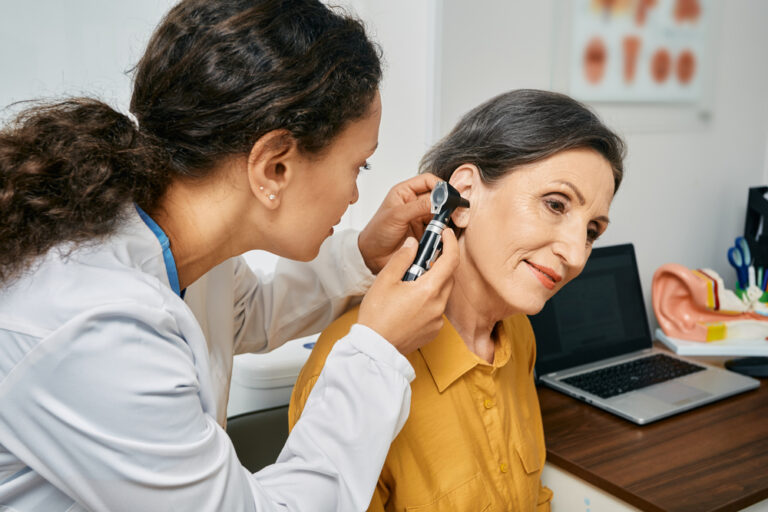Why is getting routine hearing tests significant? That’s because your general health can be significantly affected by hearing loss. Having your hearing screened regularly can help you identify hearing loss early, get care sooner, and, improve your health, wellness, and quality of life.
Who should get a hearing examination?
A loss in hearing ability can produce effects that can seriously hamper your health and well-being. For instance, hearing loss can lead to extreme social isolation. Talking with family and friends can become more difficult, and those who suffer from hearing loss may be less likely to reach out to other people, even during routine activities like shopping or going to work. It might not be shocking that this type of social isolation can lead to mental health issues, but it may come as a surprise to learn that it can be harmful to your physical health too.
Hearing loss can trigger other issues as well. For example, untreated hearing loss has been associated with many chronic conditions, including cognitive decline and depression. It’s also been linked to a number of comorbidities, including diabetes, heart conditions, and high blood pressure.
So scheduling a routine hearing test will be a good strategy for pretty much everybody.
Four reasons to monitor your hearing
There are four noteworthy reasons why keeping an eye on your hearing can be beneficial to your overall health.
1. Establishing a baseline for your hearing is important
Why would you want to have your hearing tested if it seems healthy? Well, getting a hearing exam early is a good idea for a number of reasons. The most important is that a hearing test will give us an accurate picture of your current hearing health. If your hearing changes in the future, this will make it simpler to detect. This is particularly true because hearing loss tends to develop gradually, the first symptoms are not always obvious.
Before you notice any symptoms, a hearing test will help identify hearing loss in its early stages.
2. Diagnose and treat problems earlier
Hearing loss is typically a progressive condition, meaning it tends to get worse over time. You’ll have a better prognosis, as a result, if you recognize your hearing loss early. If you treat the condition as early as possible, you will have more positive results.
When you get treatment early it will mean doing things like using ear protection or possibly wearing hearing aids. Many of the related problems like dementia, social isolation, and depression can be avoided with early treatment.
3. It’s easier to measure future changes
Even if you are diagnosed with hearing loss, that doesn’t mean your hearing your hearing won’t continue to get worse as you get older. Regular hearing exams can enable early detection and your treatment plan can be adjusted as needed.
4. Additional damage can be avoided
Most hearing loss is caused by damage, the kind of damage that occurs gradually and over time. Your hearing specialist is a considerable resource and seeing us regularly will help you identify any hearing loss as early as possible. We can provide you with information, treatments, and best practices that can help keep your hearing as healthy as possible.
We can help you figure out ways to keep sounds around you quieter and also help you safeguard your ears from day-to-day damage.
How frequently should I get my hearing assessed?
Generally speaking, it’s suggested that adults undergo a hearing exam sometime in their 20s or 30s, on the earlier side. Unless we suggest more frequent visits or if you notice any hearing issues, at least every ten years will be the advised interval for hearing assessments.
But maybe you’re thinking: what should I expect at my hearing exam? Hearing exams are generally totally non-invasive. Typically, you simply listen for some tones in a special set of headphones.
Whether you require some hearing protection or a new pair of hearing aids, we will be able to help you with the best hearing care. And we can help you determine what your hearing test schedule should be.




